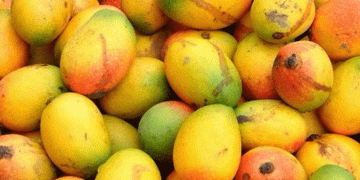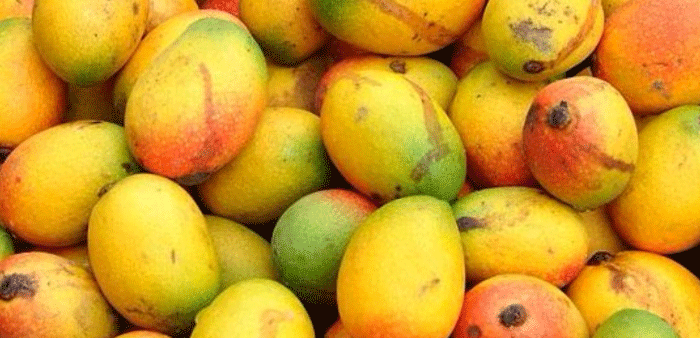A recent outbreak of a disease affecting mango trees in St. Kitts and Nevis has prompted immediate action by the Department of Agriculture’s Plant Quarantine Division. The unit is closely monitoring the situation, recognizing the significant impact on local agriculture, and is committed to identifying the cause and developing an effective treatment plan.
“Our team of plant health experts has been working diligently to diagnose the disease affecting mango trees,” the plant quarantine department said. Initial assessments indicate that the symptoms are consistent with anthracnose, a fungal disease that significantly affects the yield and quality of mango fruit. However, the exact cause remains unknown and experts are actively studying the origin, transmission and potential control measures.
Anthracnose, caused by the fungus Colletotrichum gloeosporioides, is known to cause widespread damage to mango trees, affecting leaves, branches and fruits. The disease thrives in humid conditions, which are common in St. Kitts and Nevis, making it a constant threat to mango growing. Symptoms include black lesions on leaves and fruit, premature fruit drop and poor fruit quality.
The Plant Quarantine Division suspects a combination of environmental factors, pathogens and possibly new pest strains may be contributing to the outbreak. Thus, they forced farmers to remain vigilant and report any suspected disease to local agricultural authorities for further investigation. Early detection and reporting are critical for effective disease management.
Once the disease is confirmed, the plant quarantine department plans to implement a comprehensive treatment strategy. This approach will include conducting extensive research to determine the spread of the disease, targeted application of fungicides to control the fungal pathogen, and providing guidance and support to local mango growers on best management practices. They will also explore long-term solutions such as introducing disease-resistant mango varieties.
Meanwhile, the Department of Agriculture has recommended several precautionary measures to mitigate the spread of the disease. These include:
- Quarantine measures: isolation of affected trees to prevent the spread of the pathogen to healthy trees.
- Pruning: Remove and destroy infected plant parts to reduce the source of fungal spores.
- Sanitation measures: Regular disinfection of tools and equipment to prevent disease transmission.
- Plant Monitoring: Regularly inspect mango trees for early signs of infection to take prompt action.
- Research and development: Investing in research to better understand the disease and develop effective control strategies.
The Department of Agriculture stresses that these measures are critical to combating the current outbreak and preventing future recurrences. Farmers are encouraged to adopt these practices and keep up to date with the latest developments and recommendations from agricultural authorities.
Proactive steps taken by the Plant Quarantine Division and the Ministry of Agriculture of St. Kitts and Nevis highlight the importance of early detection, strict monitoring and community cooperation in controlling plant diseases. By working together and following best practices, local mango growers can protect their crops and ensure the sustainability of mango production on the island.































